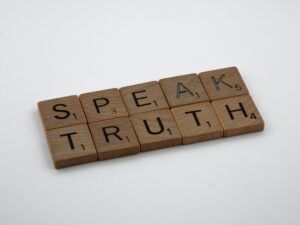(“Why am I Always So Tired?” – How Discerning the Cost of Anything is Essential to Living Well, Part IV)
This is part IV of a series looking at how discerning the non-monetary cost of things in our lives can help us figure out why we’re so tired – and how we can live better. Read Parts I, II, and III.
Emotional expenditure is probably the trickiest of life-costs to consider. We know how to track our time, and we have physical indicators of how much energy we have (or lack): but how do we measure emotional expenditure?
Thankfully, (because as humans we are body-soul unities and not brains in jars) our emotions, while not physical in themselves, do have real physical effects. Just think of tears. We feel the emotion of sadness or joy and our eyes suddenly release salt water. Of course, some people’s bodies seem to process emotion more closely than others’ – and even the most highly sensitive people can be unaware of the cost of their emotional life.
What’s to be done? The first step, as with any life-cost, is becoming more aware of the affects of our own actions and that of other’s actions around us. We have to know ourselves well to know what affects us emotionally, and how we process and spend our emotions.
Practical Tips for Discerning Emotional Energy Cost in Our Lives
Some people tend to absorb the emotions of those near them, whether they want to or not. For those of us who are highly sensitive /intuitive / empathetic, just being around other people is a higher emotional cost than it is for those of a different personality type. Activities that are heavy with emotion – watching a sad movie, listening to a friend’s troubles, remembering past trauma – are going to cost us a lot.
Other people tend to spend out their emotion quickly and/or intensely. They are passionate: their temper flares up easily, but they may also be swift to recover. These are the kind of people who can have an intense argument one minute, but no hard feelings the next. Open conflict doesn’t exact a high emotional cost from them.
Many tend to be somewhere along the continuum between the two.
One ancient personality-typing system, that of the four temperaments, offers this schema for how people process emotion.
| Short | Long | |
| Deep | Choleric | Melancholic |
| Shallow | Sanguine | Phlegmatic |
“Sanguine” personalities feel things lightly and for a short amount of time, while “Melancholic” personalities feel things deeply for a long time. “Choleric” personalities experience emotions with deep but short impact, while “Phlegmatic” personalities experience emotions with a light impact for a long time.
None of us fits neatly into a box, but if we pay attention we may find that we tend to experience emotions in a particular way. Once we can name that way (whether through a personality type or in our own words), we’re better able to recognize the emotional expenditures in our lives. We can then begin to consider the emotional cost of our activities.
Here are some simple examples:
Watching a historical documentary about World War II may require no emotional cost for one person while for another it requires a huge emotional payout. Asking the boss for a raise may take days of emotional energy for someone who dreads conflict, while it might be a momentary blip on the daily emotional output of another. Spending time on social media, daydreaming, caring for others – all of these common life activities carry an individual emotional price tag for each of us. Are we aware of it?
Like the other facets of our lives – time, energy, money – our emotions are valuable resources that deserve our intentional discernment.
We ultimately have to decide how to use the resources that have been given to us – how to invest our lives wisely in the things that truly matter to us.
When we begin to shift our ideas about the cost of anything away from money and towards our lives, we will find ourselves living with more intention. We’ll begin to pay close attention to what drains us and what gives us life, what is worth the trade-off and what isn’t. We may realize that the reason we’re so tired all the time has less to do with hours spent sleeping and more to do with hours, energy, and emotions spent on things that simply do not hold value for us.






